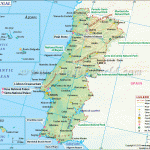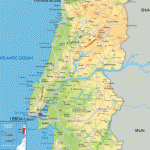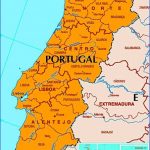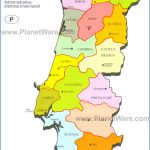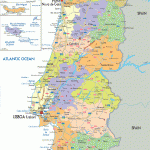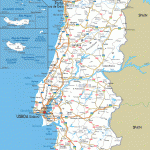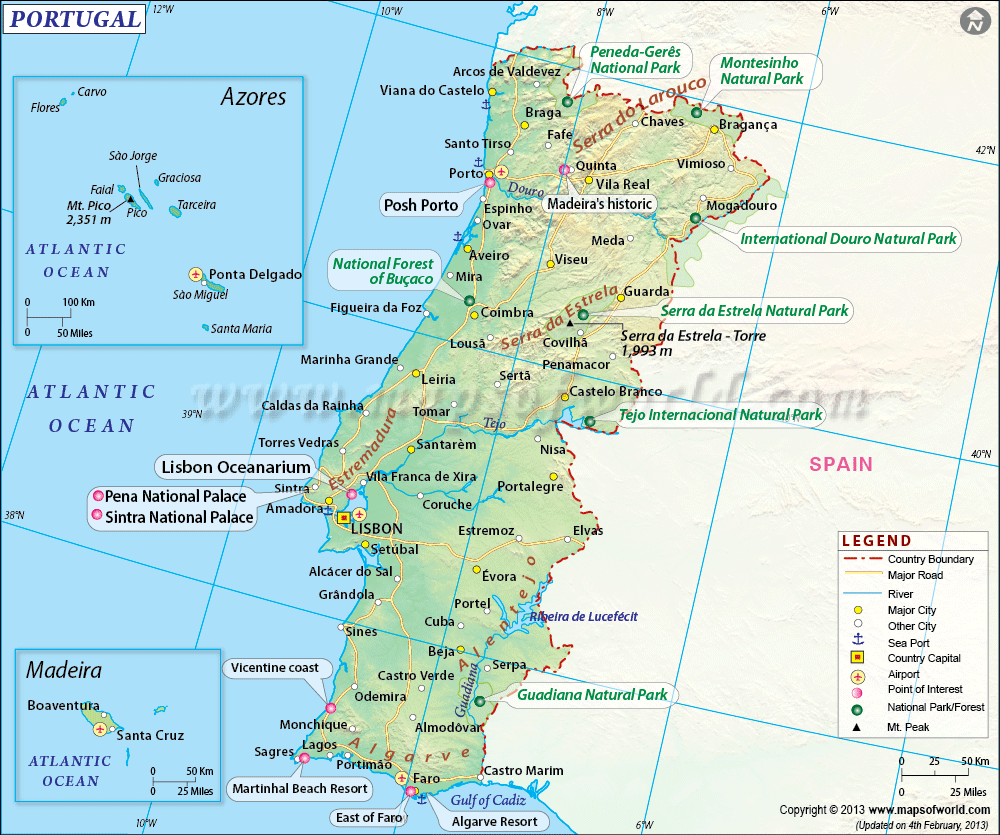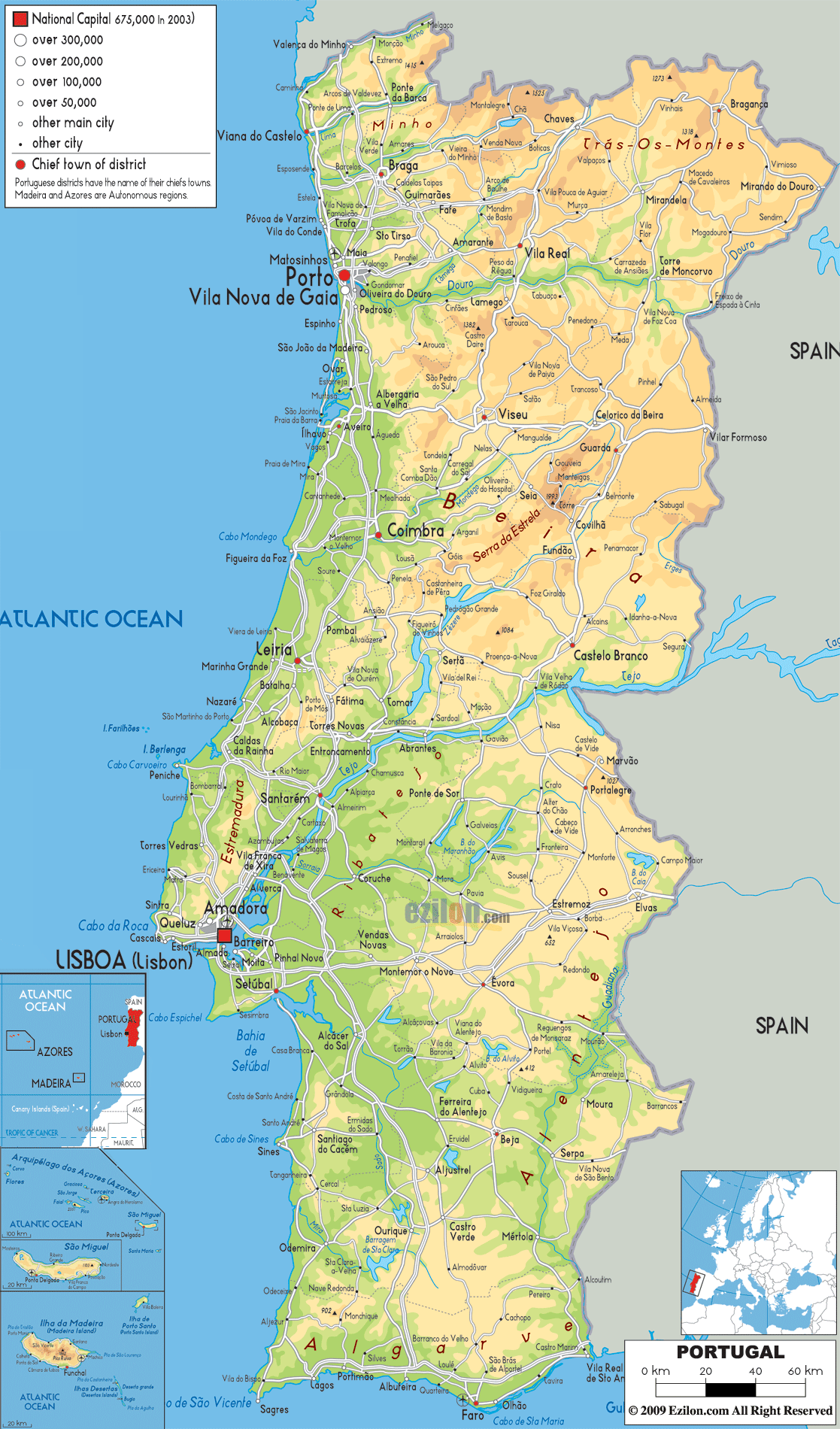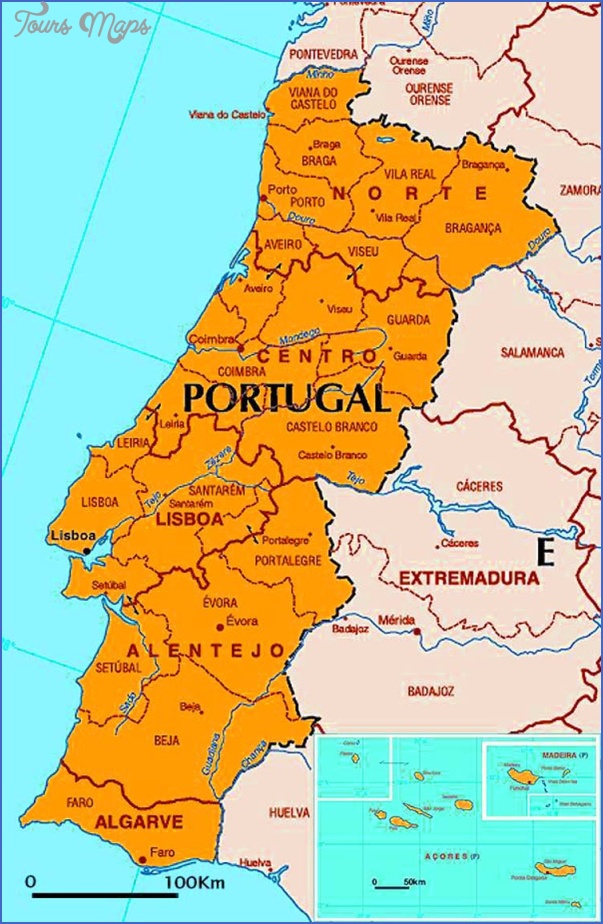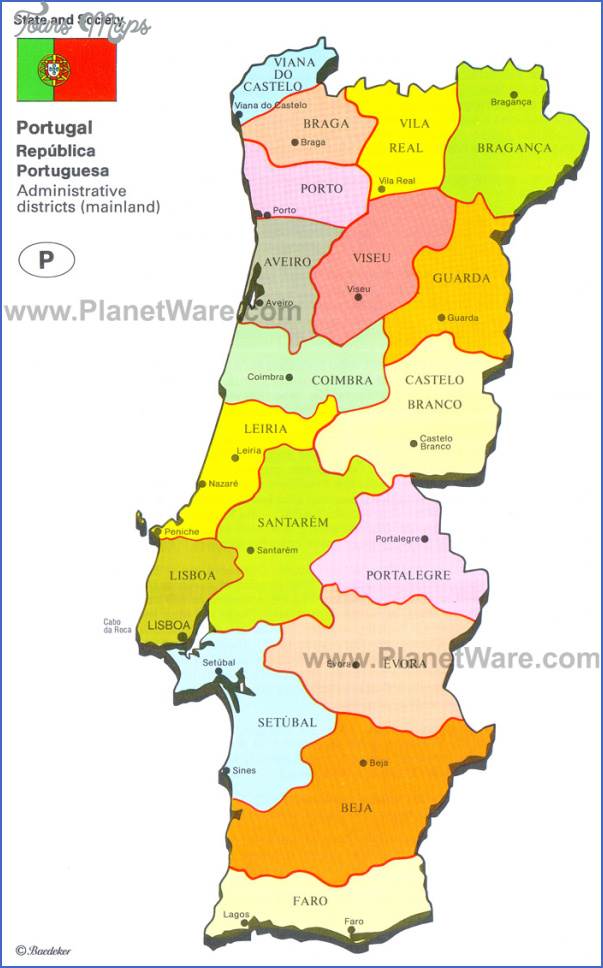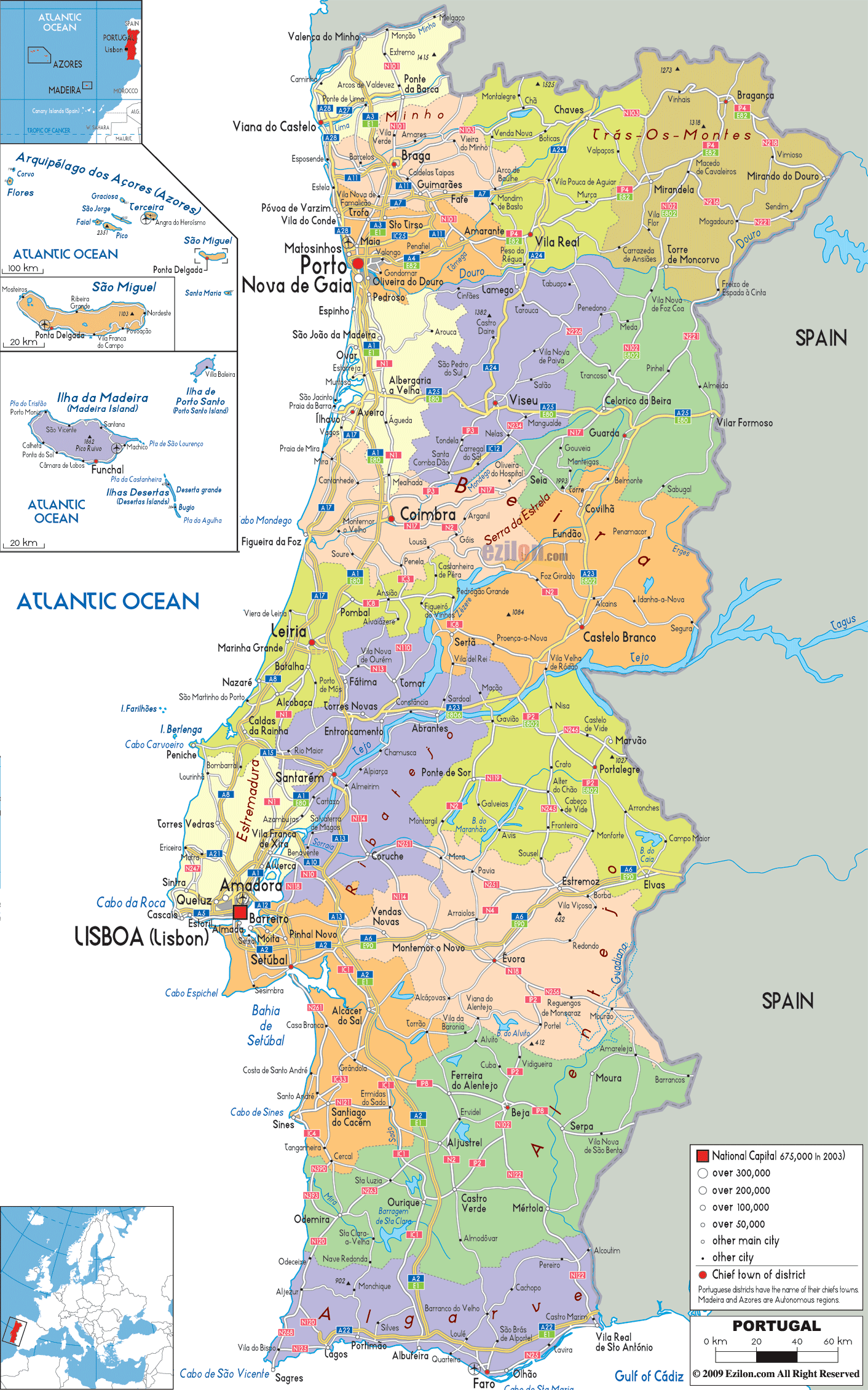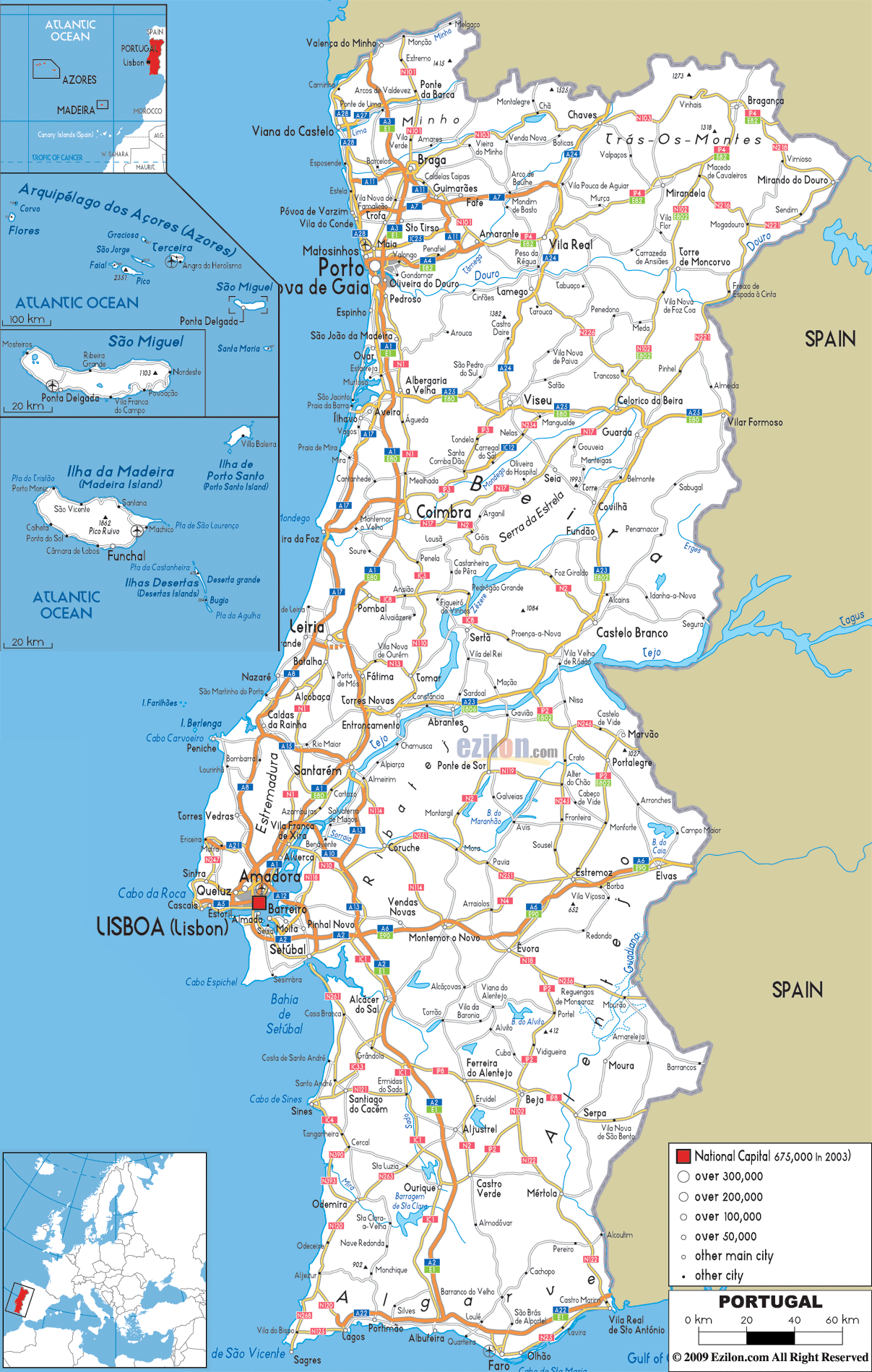Portugal Map
DOCUMENTS AND FORMALITIES
VISAS. Citizens of Australia, Canada, Ireland, New Zealand, the UK and the US can travel without visas for up to 90 days. As of August 2003, citizens of South Africa need a visa in addition to a valid passport for entrance to Portugal.
EMBASSIES. Most foreign embassies are in Lisbon (815). For Portuguese embassies at home, contact: Australia, 23 Culgoa Circuit, O’Malley, ACT 2606, mailing address P.O. Box 9092, Deakin, ACT 2600 ( 612 6290 1733); Canada, 645 Island Park Dr. Ottawa, ON K1Y OB8 ( 613 729 0883); South Africa, 599 Leyds St. Muck-leneuk, Pretoria 0002 ( 27 012 341 5522); UK, 11 Belgrave Sq. London SW1X 8PP (44 20 7235 5331); and US, 2125 Kalorama Rd. NW, Washington, D.C. 20008 ( 202 328 8610). New Zealanders should refer to the Australian embassy.
TRANSPORTATION
BY PLANE. Most international airlines serve Lisbon; some serve Porto, Faro, and the Madeiras. TAP Air Portugal (Lisbon 218 43 11 00; US and Canada800 221 7370; UK845 601 09 32; www.tap.pt) is Portugal’s national airline, serving all domestic locations and many major international cities. Portugalia (www.pga.pt) is a smaller Portuguese airline that flies between Faro, Lisbon, Porto, all msyor Spanish cities, and other Western European destinations.
BY TRAIN. Caminhos de Ferro Portugueses (808 208 208; www.cp.pt) is Portugal’s national railway, but for long-distance travel outside of the Braga-Porto-Coimbra-Lisbon line, buses are a better option. The exception is around Lisbon, where local trains are fast and efficient. Trains often leave at irregular hours, and posted schedules (horarios) aren’t always accurate; check station ticket booths upon arrival. Unless you own a Eurail, round-trip tickets must be used before 3am the following day. Don’t ride without a ticket; if you’re caught sem bilhete you’ll be fined exorbitantly. Though there is a Portugal Flexipass, it is rarely worth buying.
BY BUS. Buses are cheap, frequent, and connect just about every town in Portugal. Rodoviaria (national info 213 54 57 75), the national bus company, has recently been privatized. Each company name corresponds to a particular region of the country, such as Rodoviaria Alentejo or Minho e Douro, with notable exceptions such as EVA in the Algarve. Be wary of non-express buses in small regions like Estremadura and Alentejo, which stop every few minutes. Express coach service (expressos) between major cities is especially good; inexpensive city buses often run to nearby villages.
BY CAR. Portugal has the highest rate of automobile accidents per capita in Western Europe. The new highway system (IP) is quite good, but off the main arteries, the narrow, twisting roads are difficult to negotiate. Speed limits are ignored, recklessness is common, and lighting and road surfaces are often inadequate. Buses are safer options. Moreover, parking space in cities borders on nonexistent. Gas prices are high by North American standards ‚0.60-0.90 per liter. Portugal’s national automobile association, the Automovel Clube de Portugal (ACP), Shopping Center Amoreiras, Lojas 1122, Lisbon C 213 71 20), provides breakdown and towing service and first aid.
BY THUMB. Hitchhikers are rare in Portugal. Rides are easiest to come by at gas stations near highways and rest stops. Let’s Go does not recommend hitchhiking.
Portugal Map Photo Gallery
Maybe You Like Them Too
- Explore Les Accates, France with this Detailed Map
- Explore Góra Kalwaria, Poland with this detailed map
- Explore Gumdag, Turkmenistan with this detailed map
- Explore Telfes im Stubai, Austria with this detailed map
- Explore Langenselbold, Germany with this detailed map

